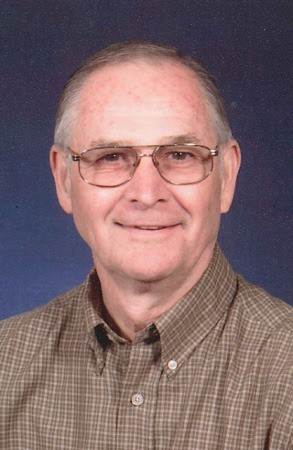“I hate to sound cliched,” says Bill Kintzley¸ “but the more you give, the more you get.”
He is talking about his involvement in Lopez’s Hospice and Home Support program, but he might as well be describing his life.
After 30 years of teaching American adolescents, then two more with mixed-age classes in Africa, Bill does not see why retirement should force him to quit working to help people.
Bill’s understated speaking style makes a teacher’s challenging life seem no big deal. He never dreamed of being a teacher – his father’s career – but after graduating from University of Washington, the prospect seemed more inviting.
He sums up three decades of teaching middle school science in Olympia this way: “Some days were really neat; some days you thought, ‘What am I doing here?’”
With equal casualness, Bill describes meeting his wife Sue on a blind date set up by a former girlfriend, who “said no, she didn’t want to get together that evening, but [she knew] someone who would … and that’s how that went.”
Bill and Sue have been married for 48 years, producing a vibrant family of four daughters and 10 grandchildren.
Hearing of the Kintzleys’ first move upon retirement produces a kind of aural double-take: wait, you did what? The Peace Corps?
Two weeks after retiring from your jobs as teacher and nurse you went to…Ghana? For two years?
They did indeed.
Bill explains that he got the idea from his own parents’ Peace Corps involvement back in 1970. After investigating the prospect, Bill and Sue expressed a preference for some Pacific Rim country. Maybe one of the islands, Southeast Asia…? So Ghana was a surprise.
“Well sure, we’d like to go to Ghana … where’s Ghana?”
Upon receiving this assignment, Bill says, “I went down to the library and looked at the atlas” to find out exactly where they would be spending the next two years.
The contrast between teaching Ghanaians and Americans was night and day.
“They are so appreciative of any opportunity … very few discipline problems. It really takes the wind out of your sails if you do have to scold a student … they’ll just stand there and nod their head … and when you’re done … they say, ‘Thank you, Mr. Kintzley.’”
With admiration, he notes how his Ghanaian students would struggle to pay their school fees, dropping out as necessary to work, then returning, even into their mid-twenties.
“It takes some getting used to that mindset …They’re all business.”
After leaving the Peace Corps in 1996, Bill and Sue were ready to try living full-time on Lopez, where they had bought property in 1990.
They gave themselves a year “to see if we like living on an island before we burn any bridges. We’re still here,” he adds with a smile.
The Kintzleys dived right into their new community. With her nursing background, Sue got involved in Hospice and Home Support first, and Bill joined her a couple of years later. Home Support’s purpose is to allow people limited by age or illness to stay as long as possible in their own homes. Volunteers do everything from driving folks to appointments, preparing meals, or helping with home maintenance, but Bill notes that a major part of the job is simply “visiting.” He and other volunteers spend up to two hours a week, although the time varies with the need. Relationships develop along the way; the person he sees now, Bill has been helping for seven years. In addition, Bill serves as driver on call for the Senior Center, transporting people and delivering lunches.
After so many years of working with adolescents, Bill enjoys the contrast of working with elderly folks.
“There’s a learning process, but I’m kind of the learner, because I enjoy hearing people’s stories,” he says.
Mary O’Bryant, Manager of Client Services for Hospice and Home Support, puts it differently: “Bill is one of my saints,” she says. “I could call and say I’ve got a person who needs help this afternoon at 2, and he would be there … He’s very present for others.”
Bill and Sue both note that the ranks of volunteers have thinned in recent years, and Sue adds a little recruitment pitch: “It’s a neat way to give back to this community, and it’s such a Lopezy thing.”
Both agree their work contains an aspect of “paying it forward,” as well as providing a sense of security that, down the road, someone might do the same for them.
Bill’s retired life is hardly retiring; his activities include church, gardening, crabbing, and hunting with his sons-in-law. But Home Support is the real centerpiece for him and Sue, and, far from expecting praise for all their hard work, Bill drops another line too heartfelt to be a cliche: “No matter what you do, you always go away feeling good.”




